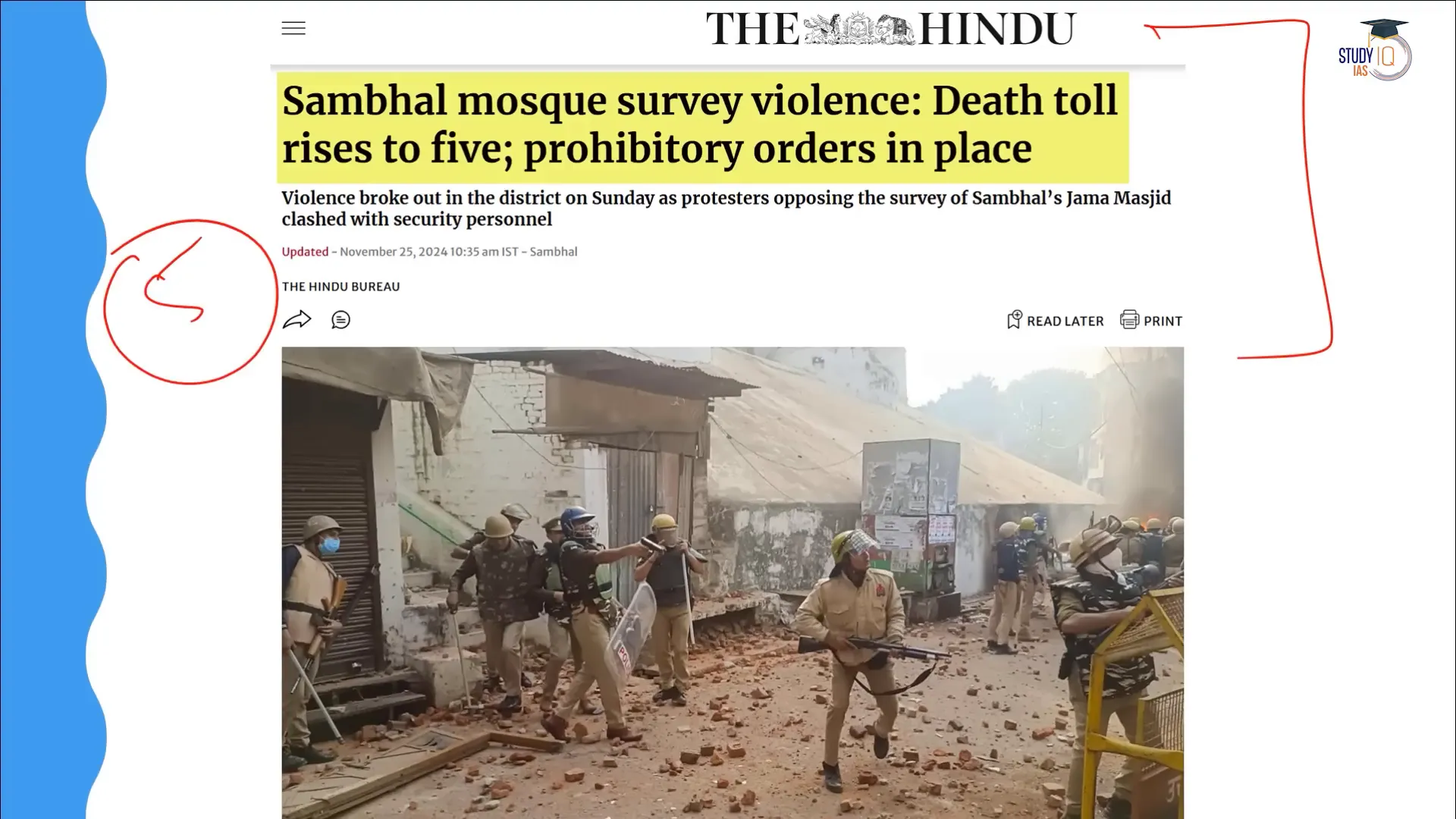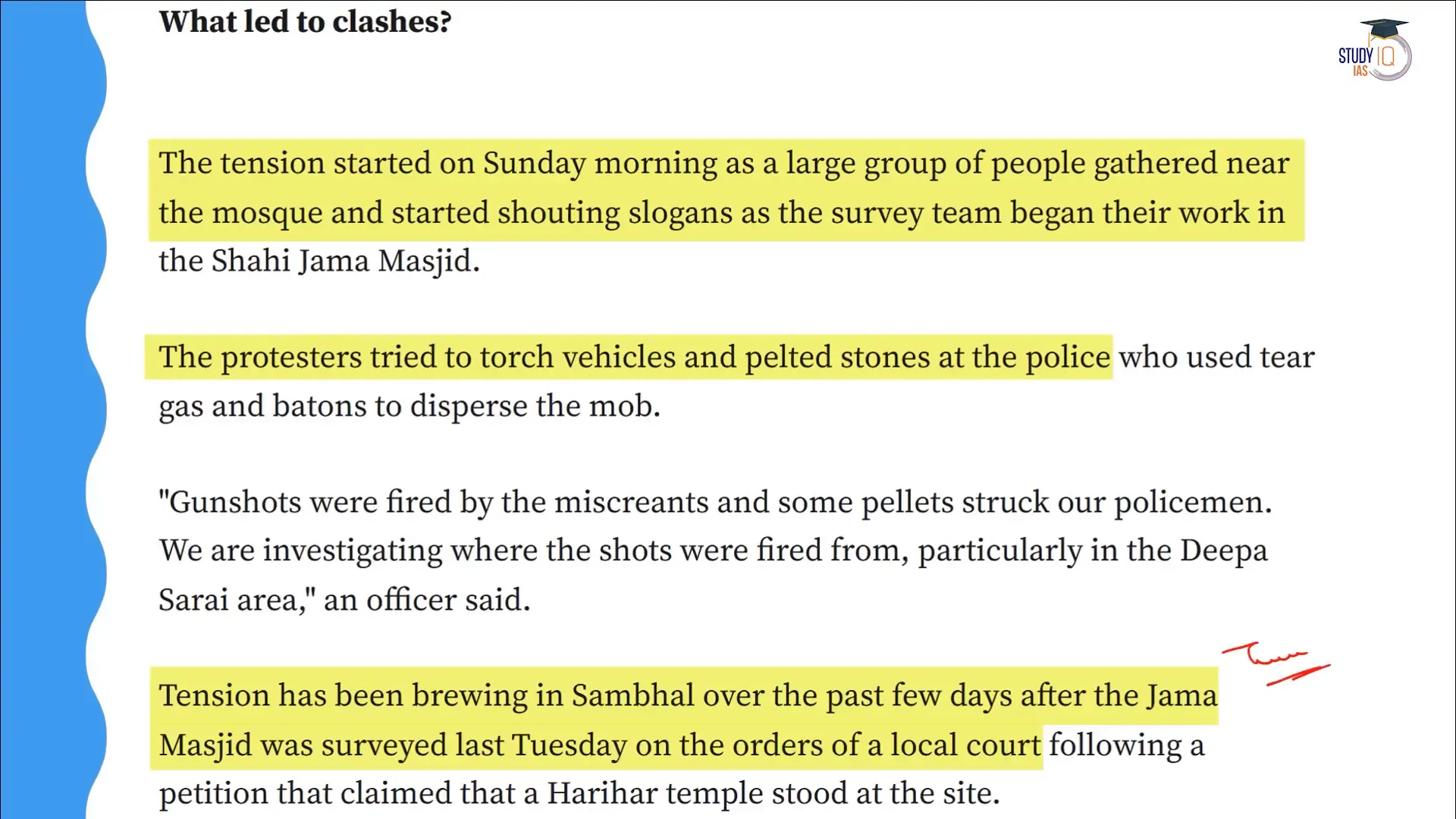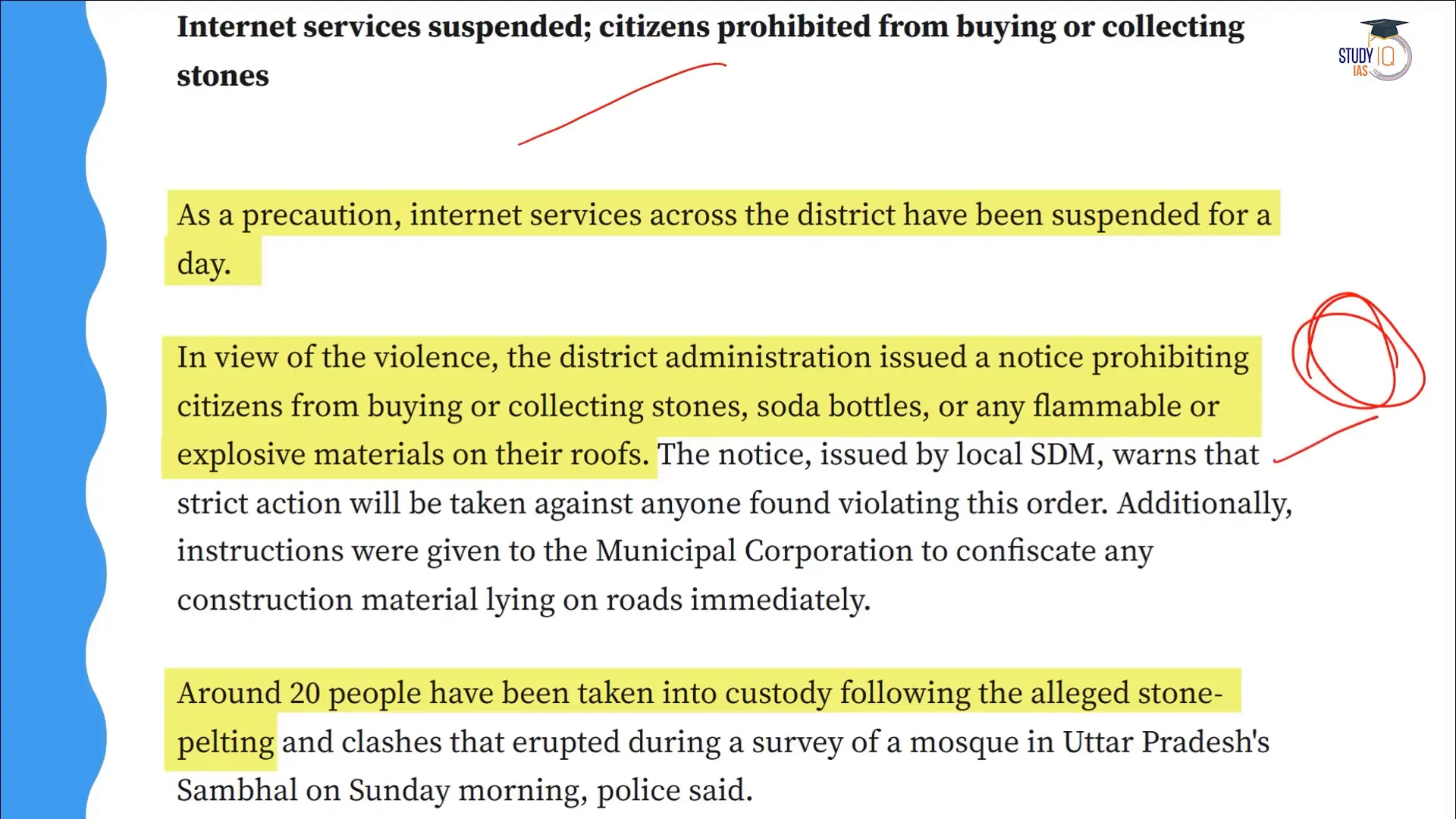
Internet Snapped: Unfolding Violence Over Mosque Survey in Sambhal, UP
In recent days, the situation in Sambhal, Uttar Pradesh has descended into chaos, as violence erupted during a court-ordered survey of a mosque. Reports suggest that at least five people have lost their lives amid the unrest. In response to the rising tensions, authorities have suspended internet services and closed local schools, reflecting the gravity of the situation.
But what was the reason for this violence? The survey in question is related to the Shahi Jama Masjid in Chandosi, a place of historical importance. The petitioners claim that the mosque was built on top of the Shri Harihar temple, which they destroyed in 1526. This claim has been the centre of controversy, leading to communal tension in the area.
Background of the incident
The local court had ordered a survey of the mosque following a petition filed by eight individuals, including prominent lawyer Harishankar Jain, known for his involvement in the Kashi Vishwanath and Gyanvapi mosque disputes. The petitioners claim that the mosque is located on land that historically stood a temple dedicated to Lord Kalki, an incarnation of Lord Vishnu.
According to the petitioners, the temple was an important site for Hindus as it is believed that Lord Vishnu will return as Kalki and end the current dark age, known as Kaliyuga. They argue that the existence of the mosque violates their religious rights and demand access to the site for worship.
The Court’s Role
The local court’s involvement began when petitioners requested an official survey to establish the site’s historical significance. The court’s initial order led to the survey taking place on Tuesday, but a subsequent survey planned for Sunday was met with violent protests. As tensions escalated, protesters clashed with police, leading to stone-throwing and arson.
In the wake of the violence, the court’s orders have raised questions about the impact of such surveys on communal harmony. The Muslim community, represented by local leaders, argues that the court’s action is likely to incite conflict and that the mosque has been a place of worship for centuries.
Response from Authorities
In an attempt to restore order, authorities have taken strict measures, including suspending internet services and arresting more than 20 individuals involved in the violence. Residents have been forbidden from collecting stones near the mosque or joining any kind of protest.
Local MP Ziaur Rahman Barq expressed concern over the court’s decision, saying it poses a threat to communal harmony and the petitioners are outsiders who are trying to disturb the peace in Sambhal.
Legal and Historical Context
The Shahi Jama Masjid is a protected monument, recognised under the Ancient Monuments Preservation Act of 1904, and declared a site of national importance. The petitioners argue that the Archaeological Survey of India has failed to protect the site from alleged encroachment by the Muslim community. The legal battle is further complicated by the Places of Worship Act of 1991, which mandates that the religious status of places of worship must remain unchanged as on August 15, 1947. The Muslim community argues that any change in this status is not only illegal but also detrimental to social harmony.
Future Implications
The ongoing violence in Sambhal raises important questions about the balance between historical claims and communal harmony. As the situation evolves, it is important for the authorities to address the underlying tensions to prevent further escalation.
The violence in Sambhal is a stark reminder of the challenges in managing communal relations in a diverse society. The need for dialogue, understanding and respect for all religious beliefs has never been more important.
Understanding the Operations of Lawrence Bishnoi’s Gang from Behind Bars
GooglsNews.com Click me







